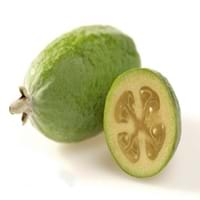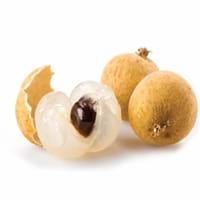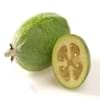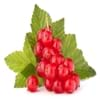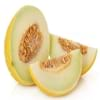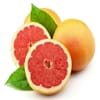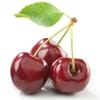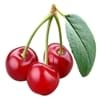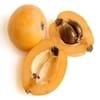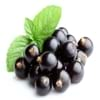Health Benefits
Anti depressant, Cancer prevention, Reduces nervous tension, Treatment of alzheimer's disease, Treatment of Lung disease
Anti depressant, Anti-inflammatory properties, Healthy mucus membrane, prevents oral cavity cancer, Prevents anemia, Prevents cases of morning sickness, Prevents lung cancer, Skin rejuvenation, Treatment of colonic diseases
General Benefits
Digestive aid, Helps in weight loss, Improves blood circulation, Strengthens bones, Treatment of common cold
Anti oxidant properties, Anti-inflammatory properties, Digestive aid, Gives you energy, Suppresses Arthritis
Skin Benefits
Brightens and lightens complexion, Skin rejuvenation
Reduces wrinkles, Skin rejuvenation
Hair Benefits
Promotes longer and healthier hair, Protects hair
Not Available
Allergy Symptoms
NA
Itching, Swelling of mouth, tongue or lips, Tingling sensation in mouth
Side Effects
Allergic reaction
Mouth irritation, Weight gain
Best Time to Eat
As a snack in the late afternoon, Don't consume at night and before bed, Eat the fresh ones, avoid mixing with any other foods, don't eat after meal., Morning time (before lunch)
As a snack in the late afternoon
Vitamin A (Retinol)
Not Available
Vitamin B5 (Pantothenic Acid)
Vitamin C (Ascorbic Acid)
Vitamin E (Tocopherole)
Not Available
Vitamin K (Phyllochinone)
Not Available
Lutein+Zeaxanthin
Not Available
Calories in Fresh Fruit with Peel
Not Available
Calories in Fresh Fruit without Peel
Not Available
Calories in Frozen Form
Not Available
Not Available
Calories in Dried Form
Not Available
Calories in Canned Form
Not Available
Not Available
Calories in Jam
Not Available
Type
Tree fruit
Tree fruit, Tropical
Season
Autumn, Winter
Mid to late summer
Varieties
Anatoki, Gemini, Kaiteri, Kakariki, Pounamu, Unique, Apollo, Den's Choice, Kakapo, Mammoth, Opal Star, Triumph and Wiki Tu
Chompoo Longan, Kohala Seedling, Haew, Edau and Biew Kiew
Seedless Variety
No
Not Available
Inside Color
White
Yellowish brown
Origin
Argentina, Brazil, Paraguay, Uruguay
Mexico
Grows on
Not Available
Trees
Soil Type
Clay loam, Gravely loam, Sandy
Well-drained
Climatic Conditions
Cold, Warm
Sunny, Warm, Without frosts
Facts about
- Feijoa is called as "pineapple guava" in some countries.
- Feijoa tree is an ornamental plant that can also be used as hedge & windbreak.
- All parts of feijoa fruit are edible(skin is mostly discarded).
- Longan is also called as "Dragon's eye" in China as it gives an impression of an eyeball.
- Longan seeds can be used to absorb the venom after the snake bite and they also help to stop bleeding.
Top Producer
New Zealand
Thailand
Other Countries
Australia, Azerbaijan, India, Japan, United States of America
Australia, Combodia, Taiwan, United States of America, Vietnam
Top Exporter
New Zealand
Thailand
Botanical Name
Acca sellowiana
Dimocarpus longan
Synonym
Feijoa sellowiana or Orthostemon sellowianus
Dragon eye
Subkingdom
Tracheobionta
Viridiplantae
Division
Magnoliophyta
Tracheophyta
Class
Magnoliopsida
Magnoliopsida
Order
Myrtales
Sapindales
Family
Myrtaceae
Sapindaceae
Species
A. sellowiana
D. longan
Generic Group
Myrtle
Not Available
Difference Between Feijoa and Longan
We might think that Feijoa and Longan are similar with respect to nutritional value and health benefits. But the nutrient content of both fruits is different. Feijoa and Longan Facts such as their taste, shape, color, and size are also distinct. The difference between Feijoa and Longan is explained here.
The amount of calories in 100 gm of fresh Feijoa and Longan with peel is Not Available and 83.00 kcal and the amount of calories without peel is 55.00 kcal and Not Available respectively. Thus, Feijoa and Longan belong to Low Calorie Fruits and Low Calorie Fruits category.These fruits might or might not differ with respect to their scientific classification. The order of Feijoa and Longan is Myrtales and Sapindales respectively. Feijoa belongs to Myrtaceae family and Longan belongs to Sapindaceae family. Feijoa belongs to Acca genus of A. sellowiana species and Longan belongs to Dimocarpus genus of D. longan species. Beings plants, both fruits belong to Plantae Kingdom.
